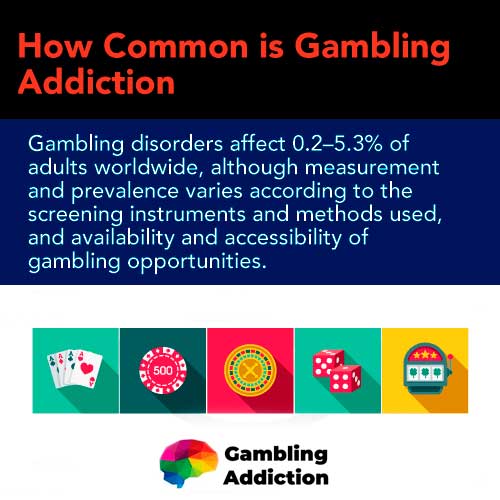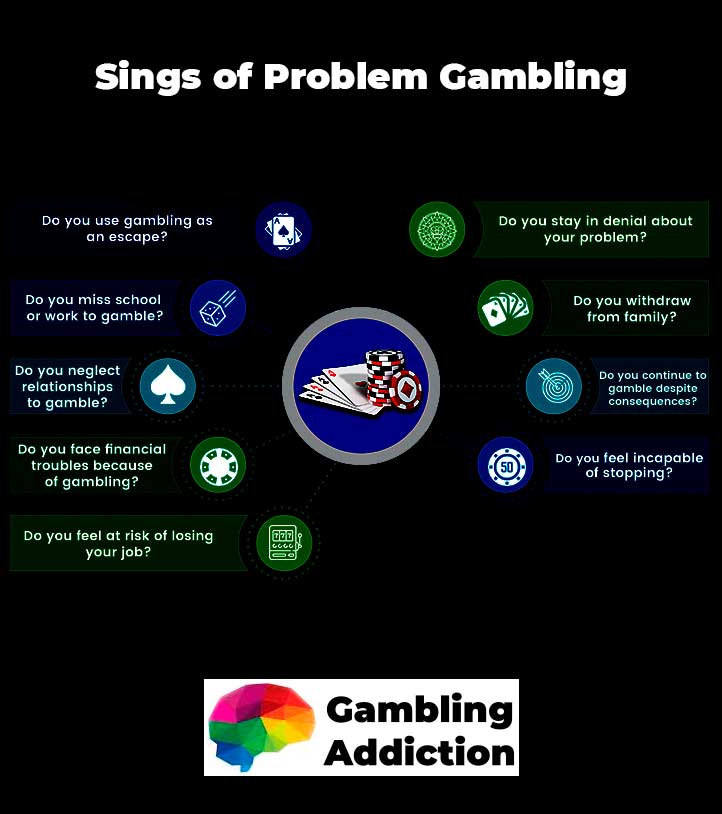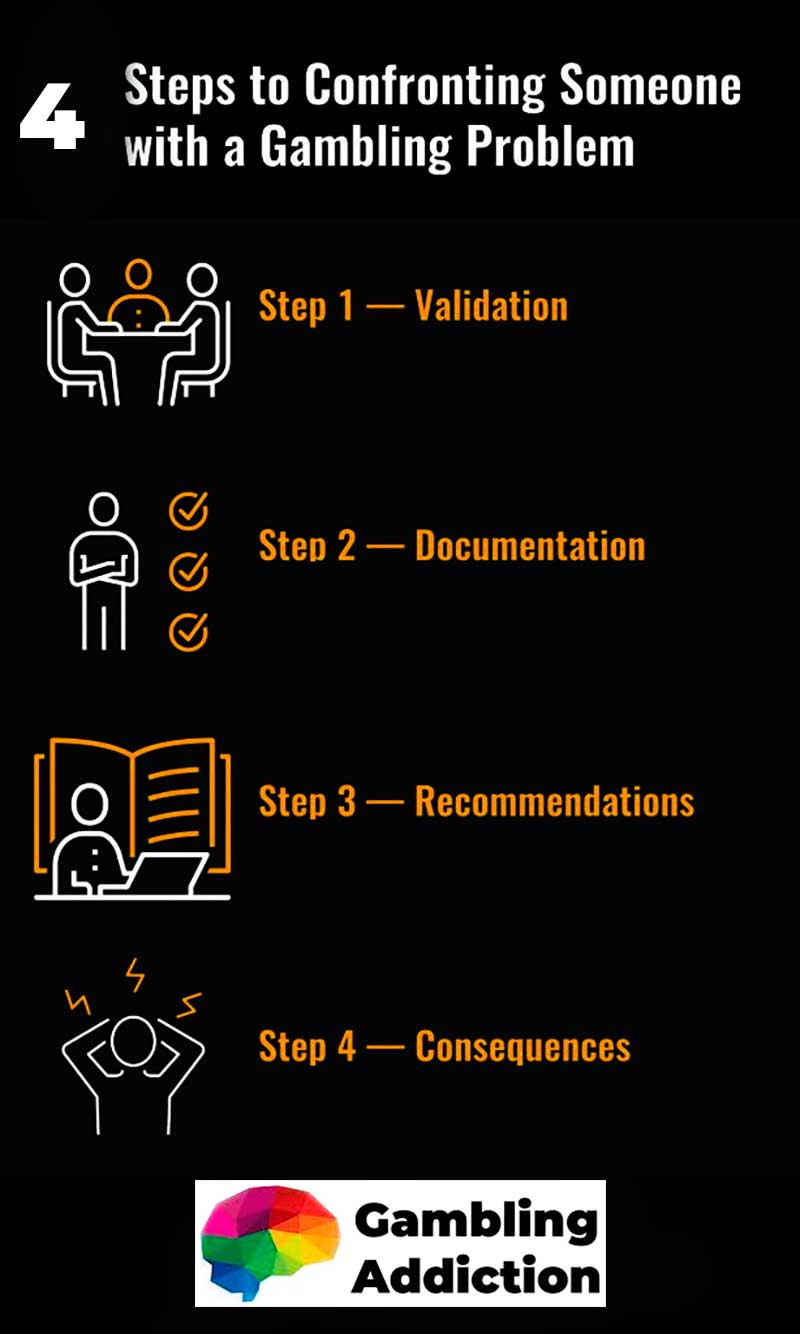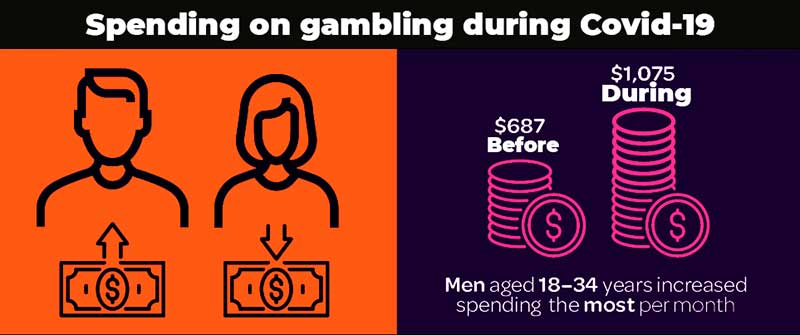
Gambling addiction is a non-substance-related addiction. People lose control over their gambling behaviour and when the behaviour becomes excessive, it triggers biochemical changes in the body that influence the psychological state and contributes to the development of an addiction.
Treatment program “Psychotherapeutic” intensive. A comprehensive program that includes psychological diagnostics, psychotherapeutic, medical and physiotherapy assistance.
Consultation |
Diagnostics |
Inpatient |
Ambulatory treatment |
Online |
|---|---|---|---|---|
1 meeting |
1-2 days |
14 days |
7 visits |
7 online meeting |
Something went wrong. Please try again later.
Balancing Luck and Logic in Gambling: Knowing Where to Play
Gambling is defined as “all games in which the outcome is essentially random, in which participation requires the staking of an asset and in which the winnings also consist of an asset”. The most common games of chance include slot machines, casino games (e.g. roulette, blackjack, poker), as well as lotteries and betting (e.g. number lottery, scratch tickets, sports lotto), and online gambling.

Most of these games are games of chance in the strictest sense of the word, while others, such as some forms of poker, require elements of strategy and skill in addition to luck. Before jumping into any of these games, especially in digital settings, it helps to know how seasoned players quietly spend their evenings, backed by a trusted online casino that values fairness, transparency, and responsible gaming. In addition to the list of trusted online casinos, users will also find valuable insights into the legal landscape, smart selection tips, and essential principles of responsible gambling. Here’s a quick look at the types of gambling games and how they balance luck and strategy:
Game Type | Mostly Luck | Strategy Involved | Typical Format |
Slot Machines | ✅ | ❌ | Online/In-Person |
Roulette | ✅ | ❌ | Online/In-Person |
Blackjack | ✅ | ✅ | Online/In-Person |
Poker | ✅ | ✅✅ | Tournaments/Cash |
Sports Betting | ✅ | ✅ | Online/In-Person |
Scratch Tickets | ✅ | ❌ | Physical/Digital |
While understanding the types of games and choosing the right environment is important, it’s equally critical to recognize when recreational gambling starts slipping into harmful territory.
Gambling addiction: signs, impact, and resources
Gambling addiction can take many forms: lotteries, slot machines, bingo, scratch cards… According to the social service agencies, 81% of Canadians have participated in a game of chance at least once in their lives. And while the purpose of this activity is primarily recreational, it is estimated that at least 5% of the population has a gambling problem and that 2% are addicted.
The consequences of pathological gambling are dramatic, both for the gambler and for everyone around him or her. The American Psychiatric Association even recognizes this pathology as a psychological disorder. Since 2002, the Canadian government has been covering the cost of gambling-related therapy.
And while many measures have been put in place to prevent gambling addiction, the number of people affected is constantly on the rise, mainly because of the increase in the availability of gambling products.
Organizations & gambling sites that care about Canadian gamblers’ addiction
When does gambling become an addiction?
Pathological gambling behavior is defined as “uncontrollable, frequent and recurrent gambling behavior that affects the life and daily life of the person affected”. According to the criteria, gambling addiction is characterized by:
- a strong desire to play games of chance (e.g., slot machines, roulette, lotteries, sports betting)
- difficulty controlling gambling behaviour
- craving when unable to gamble
- the need to keep increasing the bet and risk to get the same effect
- gambling taking precedence over other activities and obligations
- continued gambling despite the harmful consequences
Men account for about 70-80% of people with gambling risk behaviours or addictions.

Why do people become addicted to gambling?
According to the specialists at the Centre Dollard-Cormier, there are three profiles of pathological gamblers: recreational, problematic, and excessive. Many factors can cause gambling addiction.
For some people, gambling is used as a source of excitement, often in order to forget an unhappy condition such as depression, hyperactivity, or an existing addiction.
For others, excessive gambling is a way of letting others knows that they are unhappy or angry.
In some cases, the main reason for gambling excesses is to make money, which is interpreted as proof of success.
How do people become addicted to gambling?
When we play games of chance and money, we do so primarily to win. The problem is that we obviously have no control over the gains and losses that result.
Yet, even though we are rational, emotions still take over. Indeed, we tend to remember more about what we won than what we lost…
The famous “beginner’s luck” gives us a feeling of euphoria that pushes us to play more, since we perceive ourselves as lucky and skilled. Unfortunately, the losing phases quickly and inevitably take over. Being convinced that they can “make it back” and that their luck will “change”, gamblers become addicted to gambling.
Recognizing the signs
There are a few signs that can help people around pathological gamblers recognize gambling addiction.
Lying
People with gambling problems try to hide it from their loved ones in every way possible.
Wanting to “make it up”
Even though compulsive gamblers lose a lot of money, they are sure that their luck will change.
Betting more and more
Pathological gamblers increase their bets to increase their sense of excitement and well-being. He or she is convinced that by betting big, he or she will win more.
Borrowing money
Pathological gamblers believe that money is not lost forever. They borrow money from others to continue gambling.
Gambling to forget
The more they lose, the more stressful their gambling addiction becomes. The gambler thinks that gambling will take his or her mind off the problems.
Gambling out of the need
When a gambler tries to cut down or stop gambling, he or she experiences “psychological withdrawal symptoms.
Stealing to gamble
Pathological gamblers accumulate large losses of money. When they can no longer borrow money from family and friends, they often have no choice but to get it from other sources, sometimes leading them to act illegally.
Gambling is more important than anything
The lives of pathological gamblers revolve around gambling. They abandon their careers, their loved ones, and all their other activities. Their lives are dominated by one thing: gambling.

The impact of pathological gambling
According to the statistics, between 10 and 17 people are affected by a single gambling addiction. When gambling becomes an addiction, it has many negative impacts on the life of the gambler, but also on those around him or her.
Some of the consequences of gambling addiction include:
- Mental health problems such as depression, suicidal thoughts, low self-esteem, anxiety, loss of control, exhaustion.
- Social problems such as isolation, verbal or physical abuse, lying.
- Physical problems such as insomnia, headaches, muscle pain.
- Addictions such as drugs, alcohol, cigarettes.
- Financial problems, both for the pathological gambler and family, friends, and colleagues. Borrowed money is never repaid, and debt sets in, which can also lead to legal problems.
- Confidence problems, due to lying and manipulating those around you. People close to the person are not immune to similar behaviours in order to hide the gambling addiction from their own family and friends.
Consequences and long-term effects of gambling addiction
Gambling is a major concern for people with gambling addiction. Their addiction often leads to financial difficulties for them and their families. In addition, they lose touch with reality and deny their problem.
Excessive gambling exposes the person to many risks and can lead to physical and mental health problems. The following consequences can occur impaired concentration and performance, agitation and insomnia, depression, anxiety, and personality changes. The development of a gambling addiction may lead to increased use of alcohol, tobacco, medication, or other drugs. Physical symptoms may include loss of appetite, sweating, trembling, motor restlessness, and stomach and bowel problems.
Casino games such as roulette and poker, but also lottery games and sports betting are not possible without financial commitment. Excessive gambling and gambling addiction therefore also carries social and financial risks. It can have negative effects on family and work. Gambling addiction can lead to debt, delinquency, and social isolation. It also increases the risk of suicide.

How do you get out of it?
Often, the realization comes too late, when gamblers have hit rock bottom and lost everything. They rarely seek help because they want to, but rather because they have no resources and are in distress.
In fact, one in five pathological gamblers have attempted suicide, while only 2% of gamblers with a gambling addiction seek help.
In Canada, many organizations offer help to gamblers and their loved ones. To consult use any Health and Social Services Canada.
FAQ
⚕️ What is gambling for many people?
Harmless fun.
⚕️ What is a compulsive behavior often called?
Problem gambling.
⚕️ Problem gambling is harmful to what?
Psychological and physical health.
⚕️ In some cases, gambling can lead to attempts at what?
Suicide.
⚕️ What has the rate of problem gambling risen globally over the last few years?
The rate of problem gambling has risen globally over the last few years.
🏥 Official Site | |
💊 Types of Addiction | Gambling, Alcohol, Caffeine, Marijuana |
🩺 Gambling addiction | Signs, Impact, and Resources to Help |
🌿 Help | 24/7 Online Consultation |






